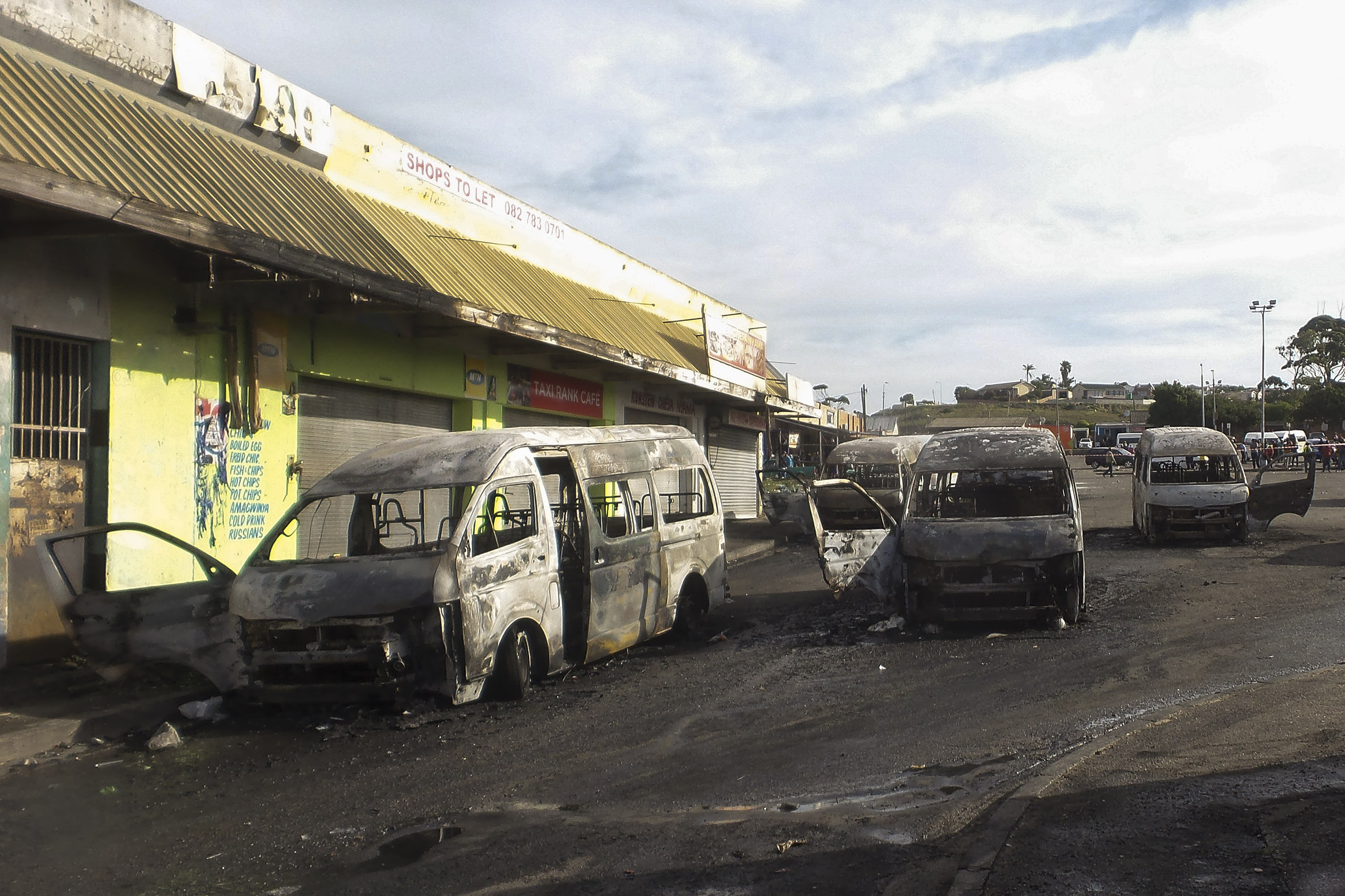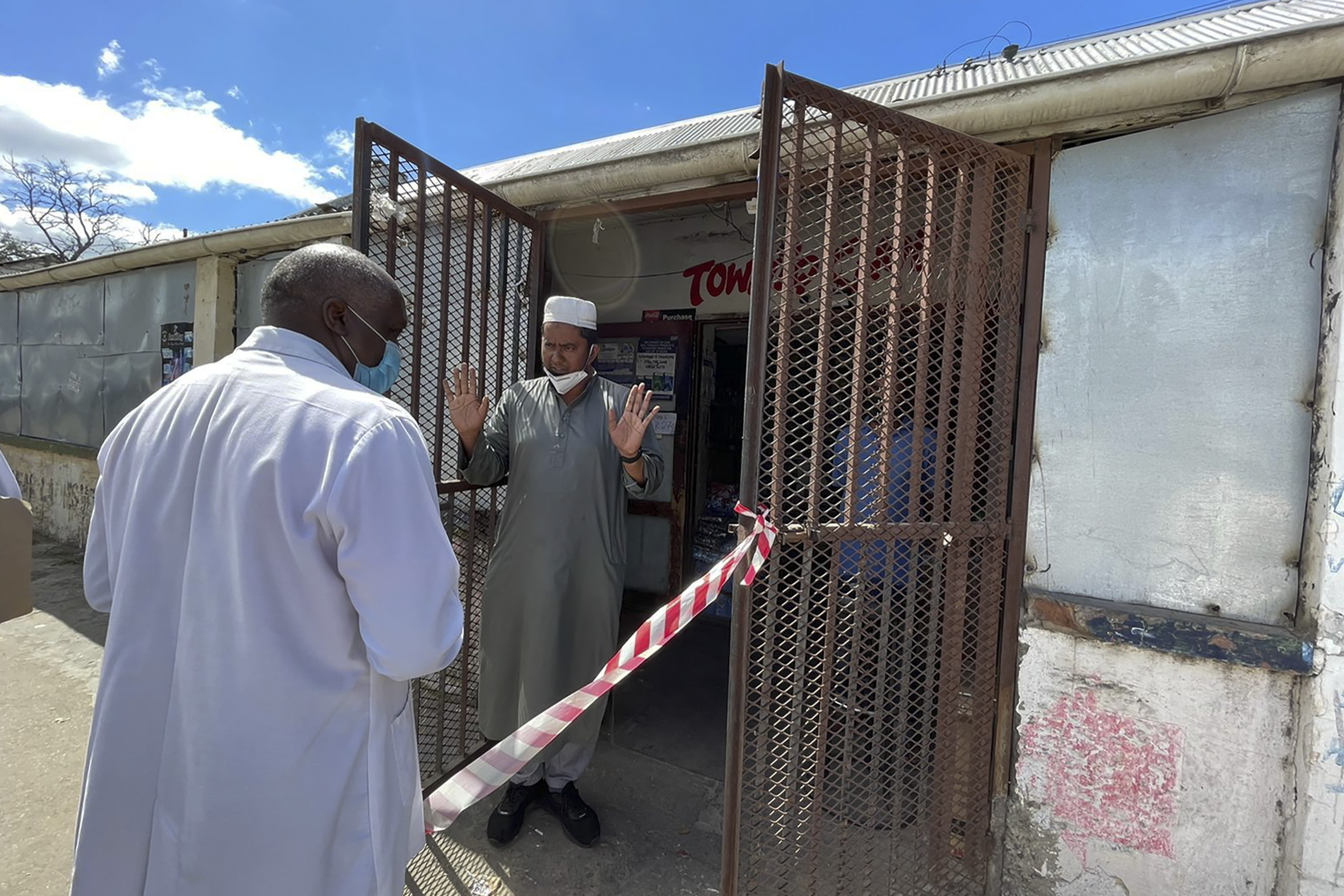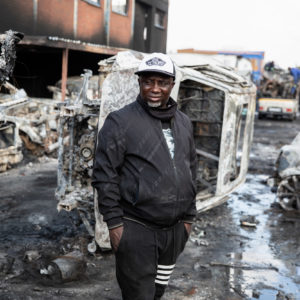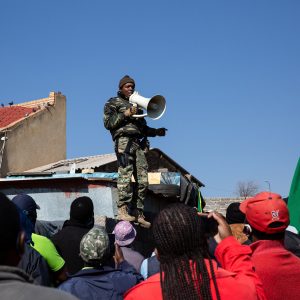Gqeberha shop owners fear the rise in xenophobia
Migrants with businesses in the city and surrounding areas say being targeted by politicians and the Nelson Mandela Bay municipality is putting lives and livelihoods at risk.
Author:
11 March 2022

Haile Alimayu lived peacefully with his family in Gqeberha, Eastern Cape, without fear of being attacked or called derogatory names because of his Ethiopian origins. That is, until October 2021, when levels of xenophobia in the city started to rise as politicians tried to charm voters with anti-migrant rhetoric ahead of the local elections in South Africa.
Haile (Ethiopian naming conventions dictate the use of a person’s first name because the second name is that of their father) fears that violence against migrants could reach uncontrollable levels as political parties continue to heighten xenophobia. Already, two of his friends were beaten up by people in a minibus taxi in New Brighton in February. They were accused of taking jobs from South Africans. After facing many threats at his spaza shop in the township, Haile moved to Gqeberha central.
The Patriotic Alliance (PA) conducted so-called inspections of several migrant-owned shops in Gqeberha’s Korsten suburb on 3 February. This was followed by a blitz on such shops in Kariega by health inspectors from the Nelson Mandela Bay municipality on 10 February.
Related article:
“Municipal officials just storm into our shops and start inspecting the environment,” said Haile. “What baffles me the most is that municipal officials only inspect shops owned by foreign migrants. This creates hatred with locals who think that we are operating illegally and that we are selling expired food and dangerous goods.
“I don’t say that officials should stop inspecting our shops, but they should do it in a more humane manner. We buy our stock from the same wholesalers as local South Africans. If our food is expired or bad, then that means it’s the same with South African shop owners since we buy from the same suppliers. The officials should be fair,” Haile said.
In a statement on the blitz, the municipality said it had closed more than 10 businesses after their owners were found to be in breach of food safety regulations. It said it was tackling “the ongoing threat of food-related diseases” in a bid to “safeguard the health and safety of all residents”, and denied that the operation was aimed at closing the shops of “our African brothers from afar”.
“We want to protect them against lawsuits and exploitation, and we don’t want the communities to take the matter into their own hands,” the municipality said. It further claimed that “some of these owners are blatantly breaking the law and even tampering with our infrastructure to steal water”.
Aggressive and disrespectful
The PA’s “inspections” in Korsten included party members demanding that shop owners and their employees provide proof of their valid passports and work permits. Mohammed Mostafa, who came to South Africa from Somalia, says he was gripped by fear when PA members targeted his son’s shop in Korsten.
“They just entered and were very disrespectful despite there being customers in the shop. They only introduced themselves after they had started fiddling around the shelves checking for expired food. They were aggressive and were blaming the government for doing nothing to control the flood of foreign immigrants to the country. I felt demeaned and dehumanised,” said Mostafa.
A shop operator speaking on condition of anonymity says at first he wanted to fight the PA members, but his instincts stopped him. “They turned everything upside down looking for fake and expired goods. After they failed to get any, they then turned on me and my workers, angrily asking for our passports and work visas.
“All this was in sight of locals, who teased us while cheering the PA team. Our relationship with locals has hit a low. They now mock us while accusing us of selling expired food and fake goods. They also tease us that we don’t have valid documents to stay in the country,” he said.

Ashraf Mahmood Limbada, spokesperson of the Korsten Traders Forum, condemns the PA’s conduct. “We represent all the businesspeople in the area, including Somalians, Bangladeshis and Pakistanis. These traders are part of us, including the landlords of the properties,” he said.
“The PA did not follow the due process of the law. They did not respect the law and its authority. They came here like vigilantes going into people’s shops, where they searched and demanded papers [permits and passports] when they did not have the authority to do so. Going into shops in such a way was tantamount to intimidation.
“If they are playing cheap tactics for exposure in the press and for votes in the elections, they have done themselves a disfavour because they have shown that they believe in intimidation, and not in the due process of law.”
Not their domain
Somali Community Service chairperson Said Mohamed says the organisation, which looks after the interests of Somali migrants, regards the actions of the PA members as criminal, undemocratic and xenophobic. “They disrespected the rights of shop owners. They have no legal rights to do what they did.
“Expired goods have never been found in any of our shops. If any expired goods were discovered, they were removed from the shelves and destroyed. The manufacturers of the goods must be blamed for selling hazardous food. Our shopkeepers do not process or package food. We buy directly from wholesalers and all products are sealed and are safe,” said Mohamed.
Migrant shop owners are also aggrieved that their efforts to uplift impoverished people is disregarded. Luqman Ali Kafow from Somalia, who operates a small clothing shop in Durban Road, Korsten, spends a substantial amount of money each week on food that he distributes to homeless people.
“I feed more than 100 people per week. I provide them with biscuits and bread. I am a Muslim and our religion preaches about assisting the impoverished members of the community. I see a person through the eyes of God. I don’t hate anyone on account of their colour or origin. It is a sin to do so.”

Not all South Africans are unhappy about migrants doing business in their neighbourhoods. Bafana Ngam, who sells clothes that he buys from Somali-owned shops to customers on farms around Somerset East, says he is glad that migrants’ shops provide him with affordable stock.
“I have managed to send my three children to secondary school because of this business. The country is battling a high record of unemployment and I don’t want to see these shops getting closed down because some politician or government official hates foreigners. This will create more chaos and unemployment,” said Ngam.
Gqeberha resident Nokukhanya Mti agrees. Her daughter, who did not want to be named, works in a takeaway shop in Kariega that is owned by a migrant from Bangladesh. Municipal inspectors raided the shop but did not close it because everything was found to be in order.
“My daughter has a matric certificate but she failed to get a job. She is employed by a foreign immigrant and her money is assisting immensely in the family,” said Mti. “A lot of politicking will increase as we approach the next elections and foreigners will be used as scapegoats for the failure of politicians to deliver basic services to citizens. Politicians have made foreigners and locals turn against each other.”
Taking action
Dale McKinley, a campaign organiser for the recently formed Kopanang Africa Against Xenophobia movement, says xenophobia is fast becoming institutionalised in South Africa. He says activists were forced to start the movement to combat the spread of anti-migrant sentiments in communities and stop the intimidation and violence aimed at migrants.
“We want to open up a proper dialogue, not violence. It’s the only way that we are going to deal with issues that are taken advantage of. People’s fears and desperations are exacerbated by opportunist politicians. People should begin to understand that the enemy is not each other, particularly poor African immigrants.
“The real cause of this problem is governance and capital. There are policies that are forcing people into poverty. We have a home affairs department that is dysfunctional. They are criminalising immigrants irrespective of what African country you are coming from. As long as you have money you have no problem, but if you are poor you are criminalised.
Related article:
“Most of the raids by the EFF and the PA are ridiculous and illegal. They are uncalled for. They are simply acts of desperate and populist organisations. In fact, it borders on thuggery.
“It’s very unfortunate and predictable in terms of the ANC, DA and other political parties that they are moving in this direction. They are finding easy and low-hanging fruits and the most vulnerable people in society are then targeted. In this case, they are immigrants who have been illegalised and criminalised.”
Marlon Daniels, a leader of the PA, refused to answer questions sent to him on WhatsApp. “Keep your crap questions to yourself,” he wrote.


